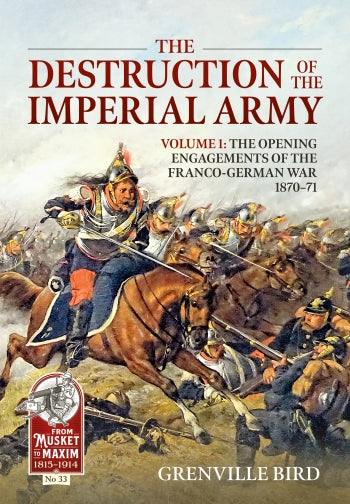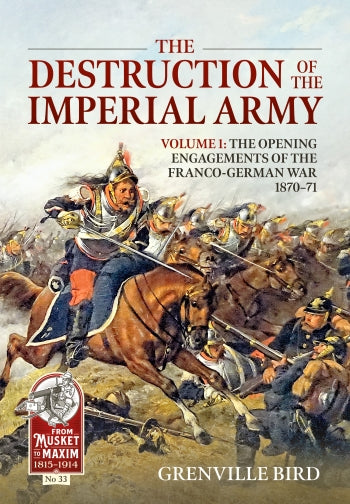Entoyment Wargaming and Hobby Centre
The Destruction of the Imperial Army
The Destruction of the Imperial Army
Low stock: 1 left
Couldn't load pickup availability
Out Of Stock!
We will notify you when this product becomes available.
This work, the first in a four volume series, takes a fresh and in depth look at the events of the opening months of the Franco-German War between Napoleon’s Imperial Army and King Wilhelm’s German armies when within the space of four weeks in summer 1870 the established order was overthrown and Prussia laid the foundations for a military and political hegemony in Europe which led directly or indirectly to two World Wars.
Many recent accounts of this pivotal conflict draw heavily on the usual tried and tested sources, for example, those which have been translated into English and are readily available, such as the German Official histories and the memoirs of senior German commanders. Whilst this work does reference such sources, the basic narrative is taken from the numerous volumed French official account, La Guerre de 1870–71published by the Section historique de l’État-major de l’Armée around the turn of the 20th Century, which in addition to making use of information not available to the authors of the earlier German official history, also includes detailed annexes providing copious orders of battle, a er battle unit reports, and casualty records for almost every engagement. is excellent source material has been supplemented by the works of Lehautcourt and the memoirs of many of the French commanders with additional detail and analysis derived from the numerous official and semi-official Staff studies published during the 1880–90s. Whilst many of the German works have been published in English, few of the French works have been translated and their inclusion within this work will provide both a fresh perspective of events as well as providing a useful counterpoint to the somewhat ‘Prussian-centric’ viewpoints reflected in many previous works.
The first volume in the series covers the background to the conflict, the opposing armies, war plans, mobilisation and the opening engagements of the conflict including the combats at Saarbrücken and Wissembourg, the battles of Froeschwiller and Forbach and the retreat to the Moselle. Subsequent volumes will take a similarly detailed and comprehensive look at the three major encounters around Metz at Borny, Vionville and St Privat; the short-lived campaign of the Army of Châlons and the fighting at Nouart, Beaumont and Sedan, and the oft-overlooked sieges of Strasbourg and Metz and the battles of Servigny–Noiseville and Landonchamps.
Share


